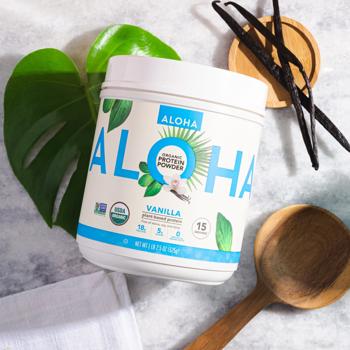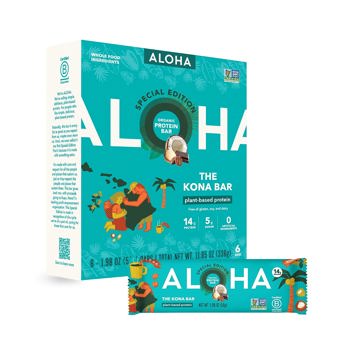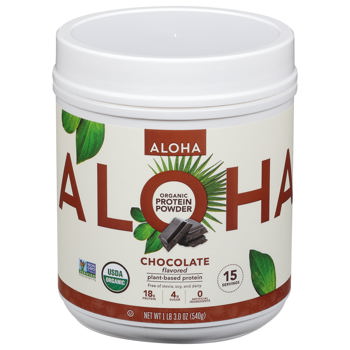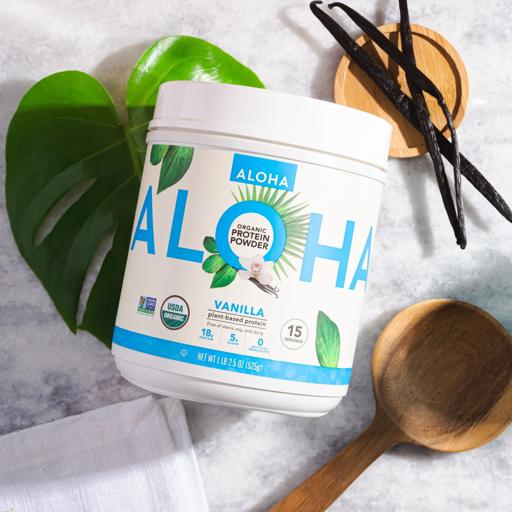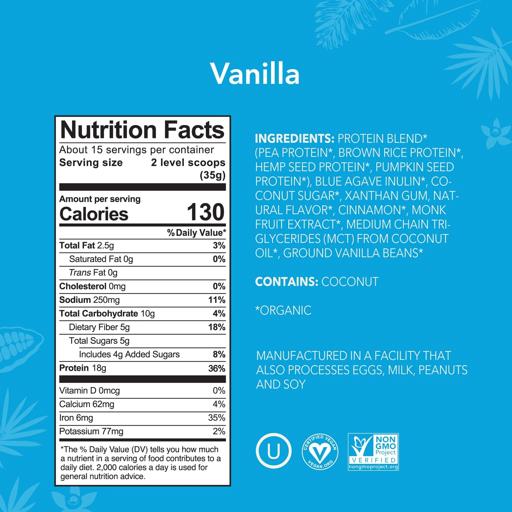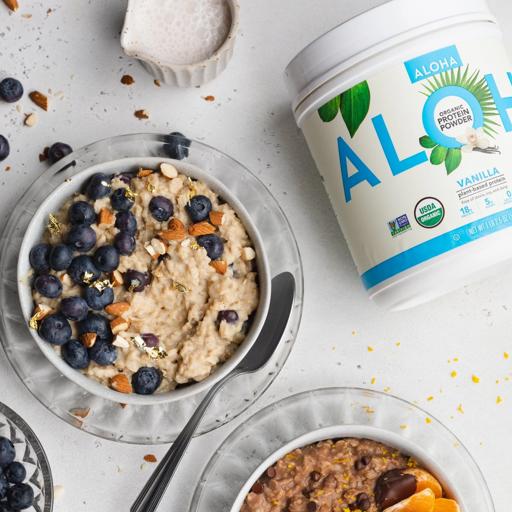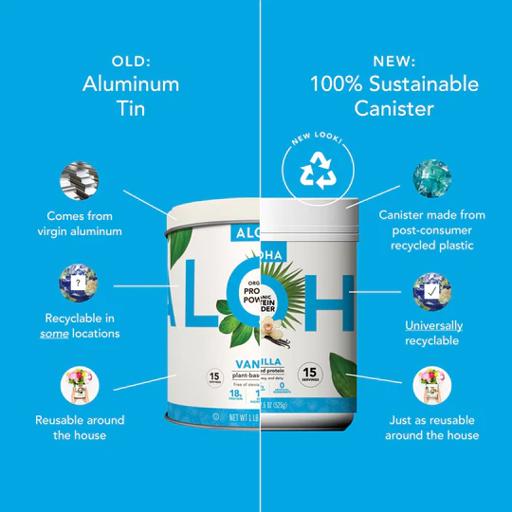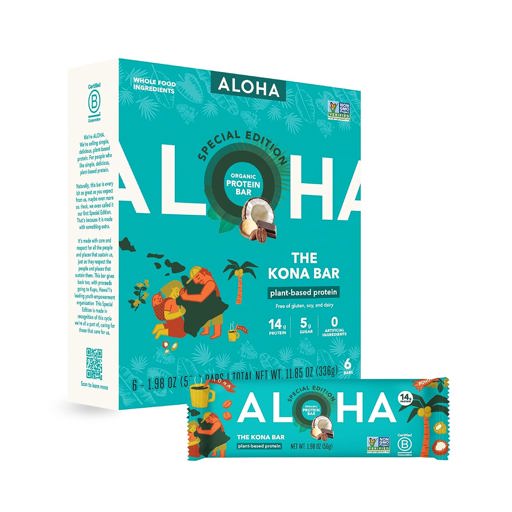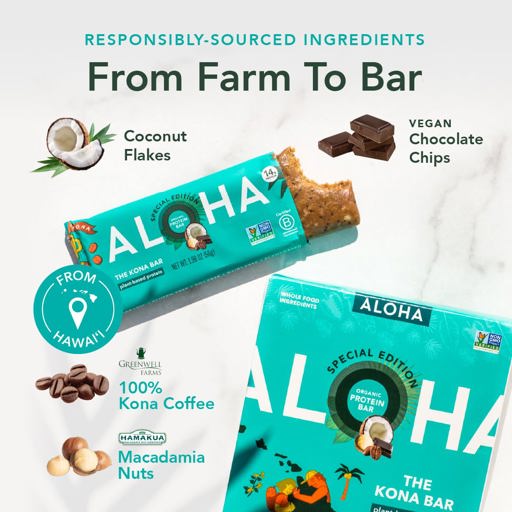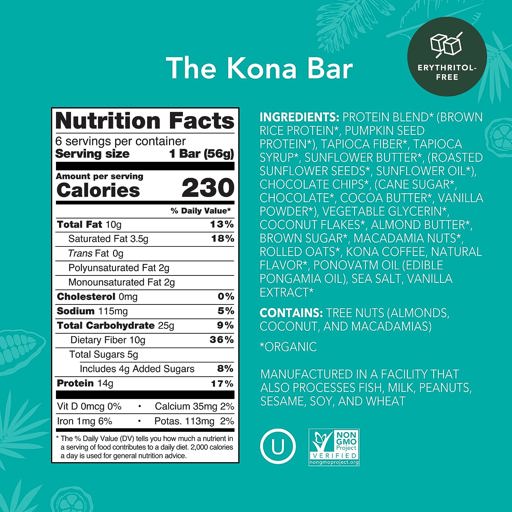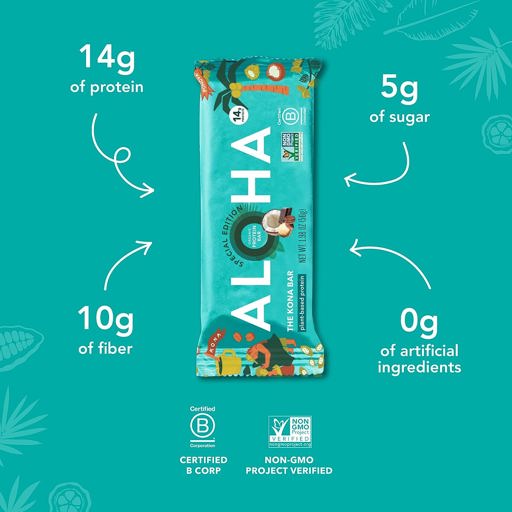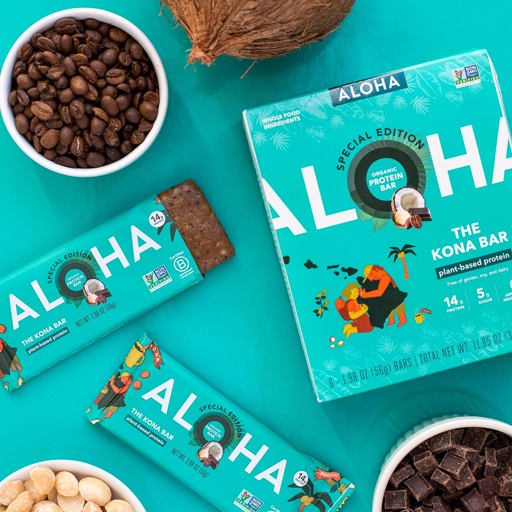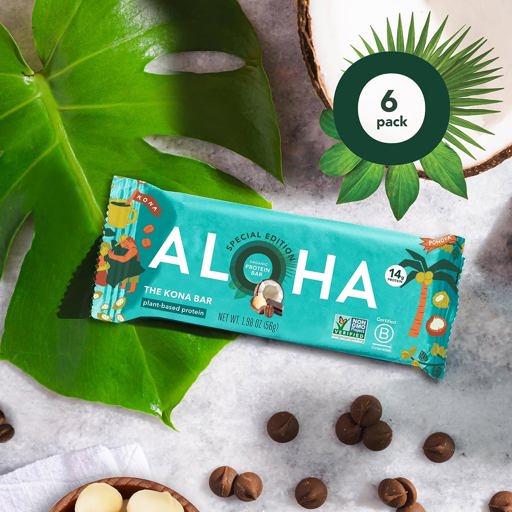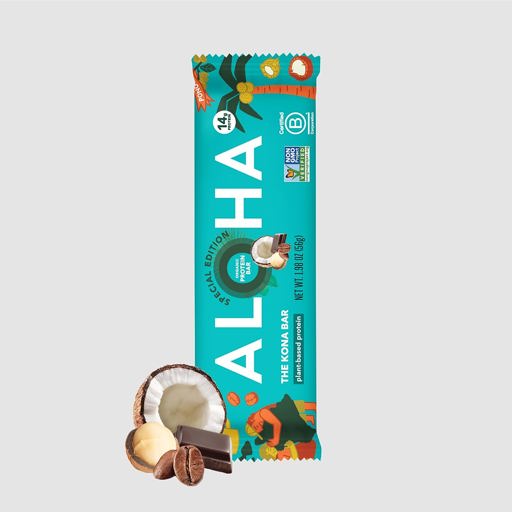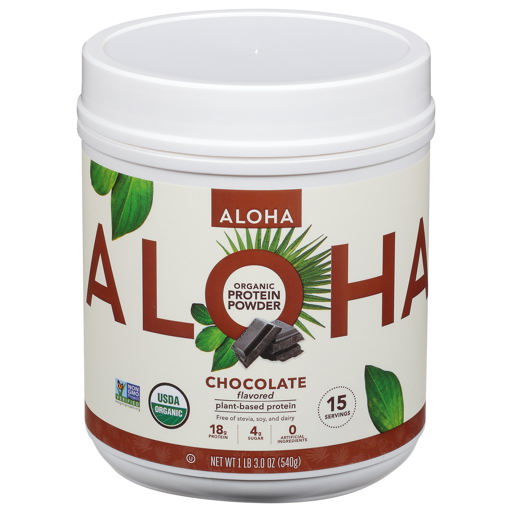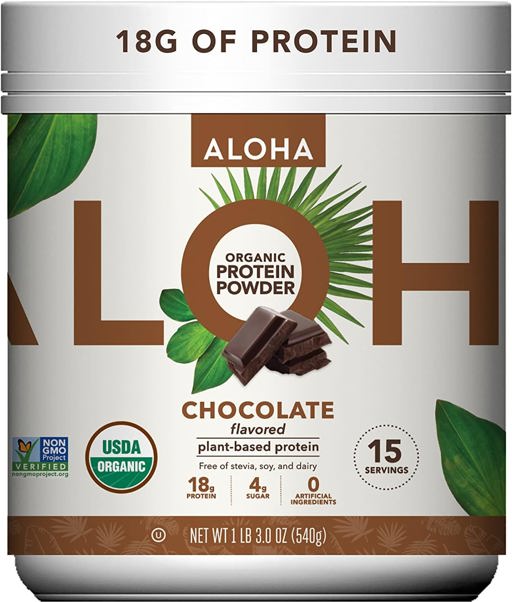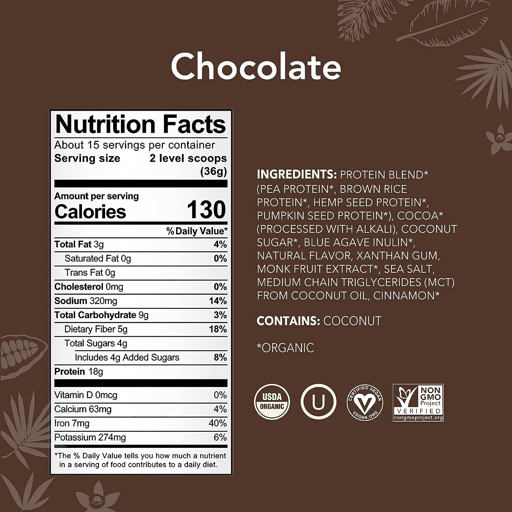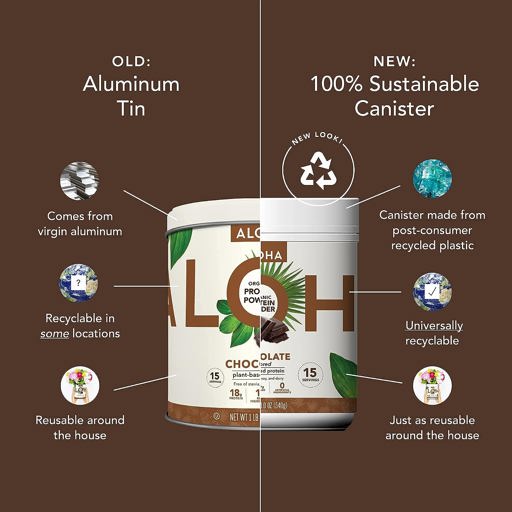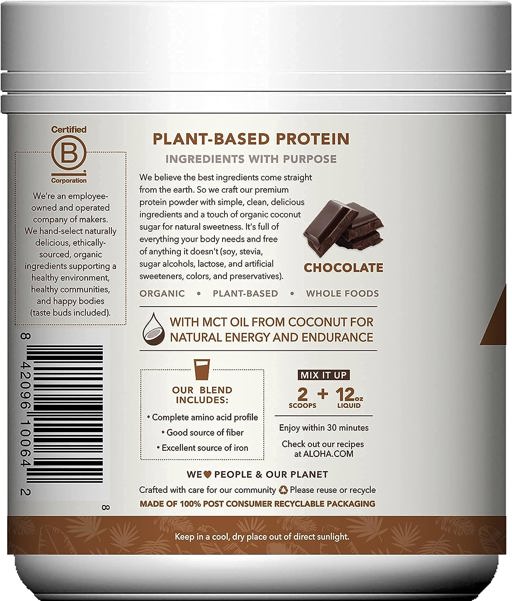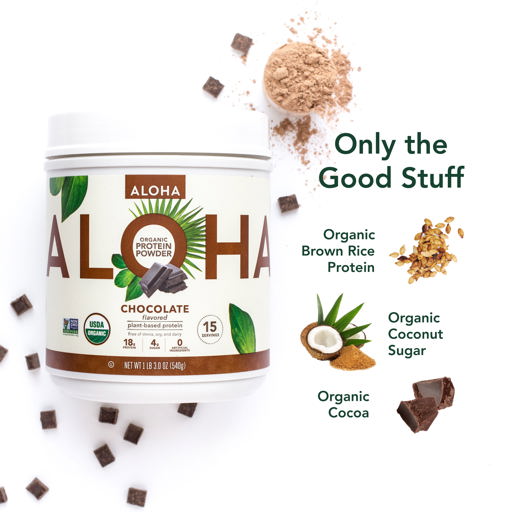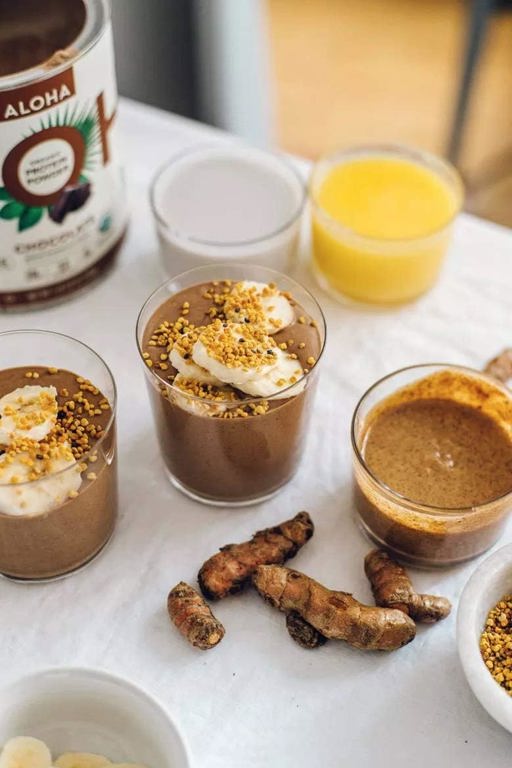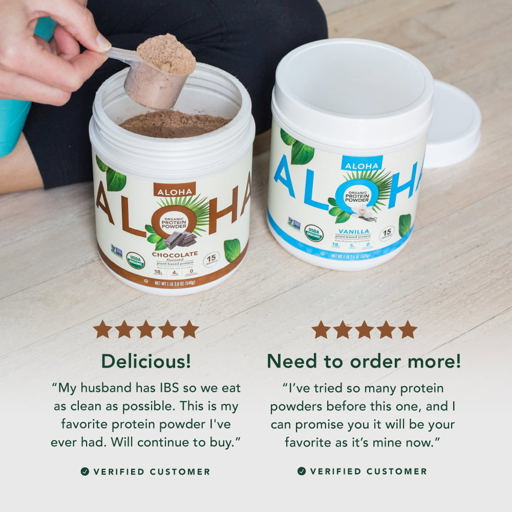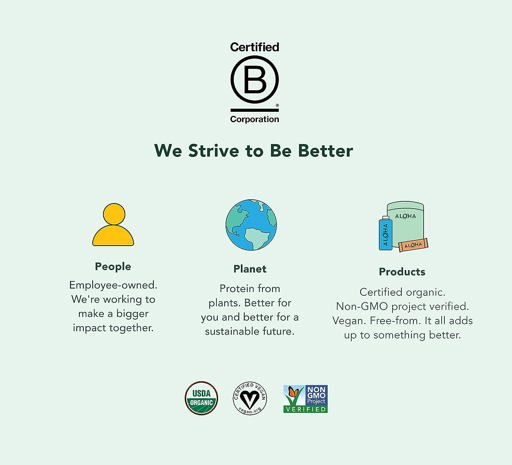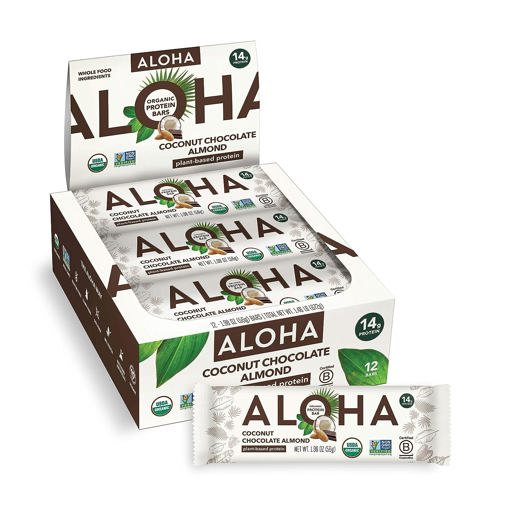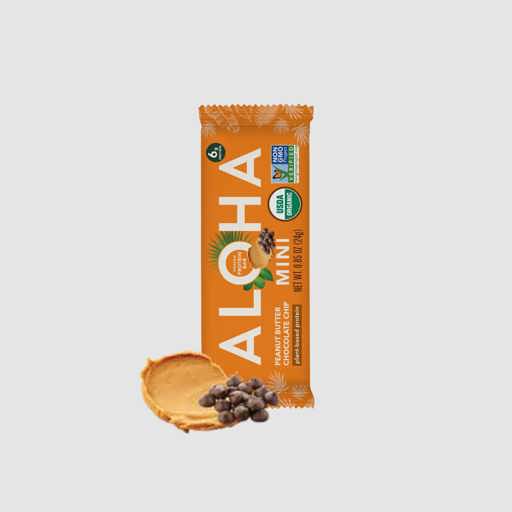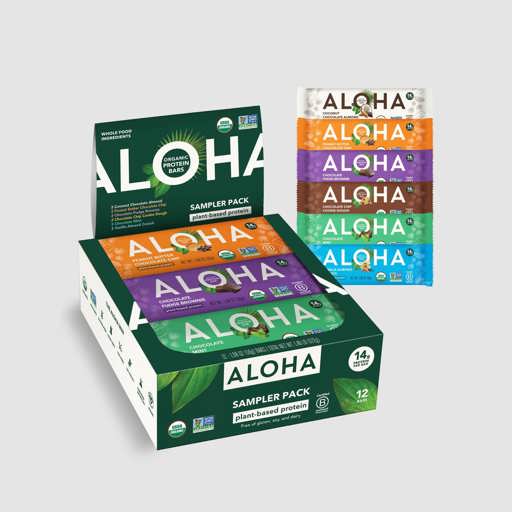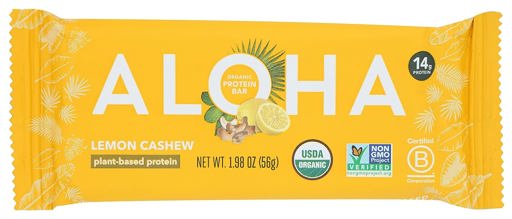Bestsellers for ALOHA Ingredients
Protein is a key building block for strong muscles and overall health. However, not all proteins are created equal. With growing awareness about the impact of diet on personal well-being and the environment, many people are turning their attention towards plant-based sources like almonds, pumpkin seeds, brown rice, hemp seeds, and peas for their nutritional needs. These sustainable options offer more than just muscle-building power; they also come with environmental perks that help us care for our planet while nourishing ourselves. Choosing plant-based protein sources isn't just a trend—it's a lifestyle choice supporting individual health goals and global sustainability efforts in delicious harmony.
Protein: Why We Need It

Protein helps build muscles, repair tissues, and make enzymes and hormones. Without enough protein, our bodies can't do these important jobs as effectively.
Many people believe animal protein is required to give the body enough protein, but eating a variety of plant-based proteins can give your body all the essential amino acids required. Amino acids are the building blocks of protein that we must get from food because our bodies don't make them. Foods like soybeans, peas, quinoa, and amaranth have all of the essential amino acids our bodies need, just like animal proteins do.
Eating different plant foods throughout the day—like nut butter in your breakfast smoothie or beans in your lunch salad—gives your body a mix of different proteins. This variety can support muscle growth and may even help with recovery after exercise.
Remember that getting enough protein at every meal is important to help maintain muscle mass and support overall health. Plant-based sources are an excellent way to meet this need while also being kinder to the environment and supporting other health goals, like fostering heart health through a diet lower in saturated fat and cholesterol.
Plant vs. Animal Proteins
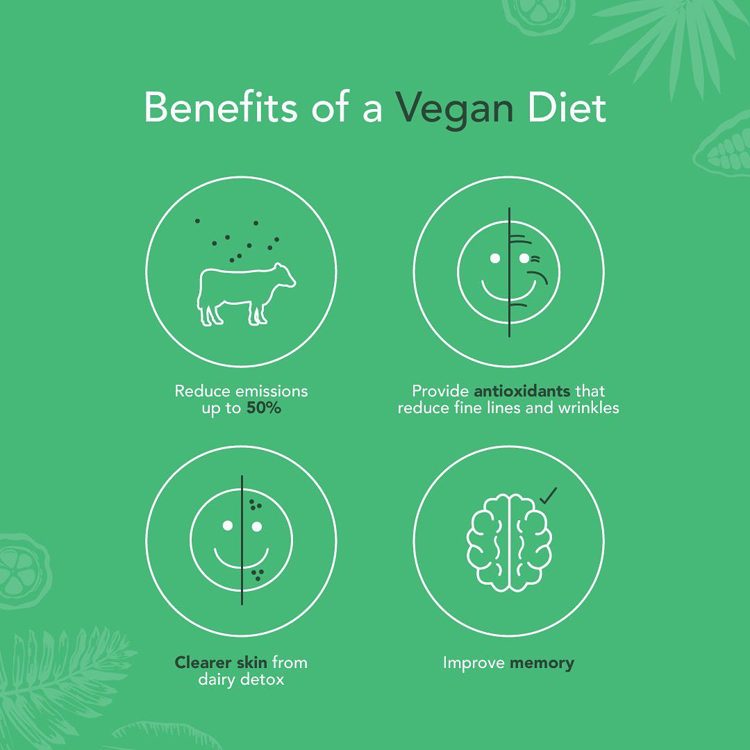
Plant-based proteins, derived from beans, nuts, seeds, and grains, offer a robust alternative to animal proteins found in meat, dairy products, eggs, and fish. Both are essential for building strong muscles and supporting repair and growth; however, plant-based options carry additional health benefits. They typically contain less saturated fat and no cholesterol—contributing to heart health by reducing the risk of heart disease.
Moreover, plant proteins are more environmentally friendly than their animal counterparts. Plant protein production generally requires less water and land resources while generating fewer greenhouse gases—a positive step towards combating climate change.
A common concern is whether plant proteins provide all the essential amino acids necessary for our bodies. Although some individual plants may not be complete sources of protein on their own when consumed in variety—as with soybeans paired with quinoa or peas combined with amaranth—the body can receive all the required nutrients solely from plants.
In addition to these benefits, many plant foods are rich in antioxidants—compounds that protect your cells against free radicals, which can play a role in heart disease, cancer, and other diseases. Antioxidants such as vitamins C and E and selenium found abundantly in various fruits and vegetables also contribute to clearer skin by aiding in detoxification processes, including those related to cutting out dairy—a common allergen and inflammatory agent known to exacerbate skin issues like acne.
Last but important is the cognitive benefit associated with vegan diets rich in fruits, vegetables, whole grains, nuts, seeds, and legumes: improved memory function has been observed among individuals following such dietary patterns due likely to increased intake of key nutrients like vitamin K, folate, flavonoids, omega-3 fatty acids,—all known support brain health.
Embracing a diet filled with diverse plant-based foods ensures you're not only tantalizing your taste buds with new flavors but also nourishing your body comprehensively—from bolstering muscle growth, maintaining cardiovascular wellness, enhancing mental clarity, promoting radiant complexion—all while respecting the planet we call home. And you don't have to be a vegan to benefit from getting more plants in your diet.
Environmental Benefits of Plant Protein
Choosing plant-based proteins over animal-derived ones offers many environmental benefits, which are increasingly supported by scientific research. For instance, plant protein production requires significantly less water and land resources.
Moreover, cultivating plants for their proteins typically results in lower greenhouse gas emissions than raising livestock. The Food and Agriculture Organization (FAO) reports that livestock accounts for nearly 14.5% of global greenhouse gas emissions attributed to human activity. By opting for plant-based options like those offered by ALOHA, individuals can contribute to reducing this impact on climate change.
Farming practices associated with plant cultivation also tend to cause less pollution than those used in animal agriculture. Animal waste often contains nutrients like nitrogen and phosphorus that can lead to eutrophication—a process where water bodies receive excess nutrients that stimulate excessive algae growth—thereby harming aquatic ecosystems. Plant farming generally involves fewer pollutants entering our water systems.
Additionally, embracing a diet rich in plant proteins helps protect vital wildlife habitats from being cleared for pasture or feed crops for animals raised as meat sources. The World Wildlife Fund has reported extensive deforestation linked to creating grazing land for cattle—particularly in regions such as the Amazon rainforest—which is home to an incredible diversity of species.
In summary, when you choose ALOHA's range of products featuring high-quality plant-based proteins—from bars to shakes—you're not only nourishing your body but also contributing positively towards conserving precious natural resources, mitigating climate change effects through reduced greenhouse gas emissions, minimizing pollution levels in our watersheds and protecting essential ecosystems around the globe.
Plant-Based Protein Sources
When considering a plant-based diet, focusing on foods that provide the necessary amino acids for maintaining good health is essential. Amino acids are the building blocks of proteins and play a crucial role in various bodily functions, including gut health. While animal products are known for being complete protein sources—meaning they contain all nine essential amino acids—there are plenty of plant-based options that, in combination, can help you meet your nutritional needs. Whether you're a vegan, vegetarian, or are simply looking to get more plant foods in your diet, swapping animal-based proteins for plant foods can benefit your health and the environment too.
Here are some delicious, whole foods that contain the amino acid building blocks our bodies need:
- Legumes such as lentils, chickpeas, and black beans offer a hearty texture and supply significant protein per serving. They're versatile ingredients that can be incorporated into soups, salads, or even made into delicious veggie burgers. Additionally, legumes contain fiber, promoting digestive health by fostering beneficial gut bacteria.
Whole grains like quinoa and buckwheat are also excellent choices; they're among the few plant foods considered complete proteins. Quinoa is particularly easy to prepare and can be used instead of rice or pasta while providing an extra protein punch.
Nuts and seeds should not be overlooked either—they pack protein and healthy fats into every bite. Almonds, chia seeds, flaxseeds, and hemp seeds can easily be added to smoothies or sprinkled over oatmeal for an enhanced nutrient profile.
Soy products such as tofu and tempeh stand out in the realm of plant-based proteins, too. Tofu is incredibly adaptable—it absorbs flavors from spices and marinades, making it suitable for various cuisines—and tempeh offers a firmer texture and nutty taste.
Lastly, green vegetables like spinach and broccoli may surprise you with their protein content when consumed in larger quantities alongside other protein-rich plants.
By incorporating these diverse food groups into your meals regularly, you ensure you get all the essential amino acids required for optimal gut health without relying on animal products. This approach supports personal wellness and contributes to environmental sustainability—a core value we embrace at ALOHA.
Almond Protein
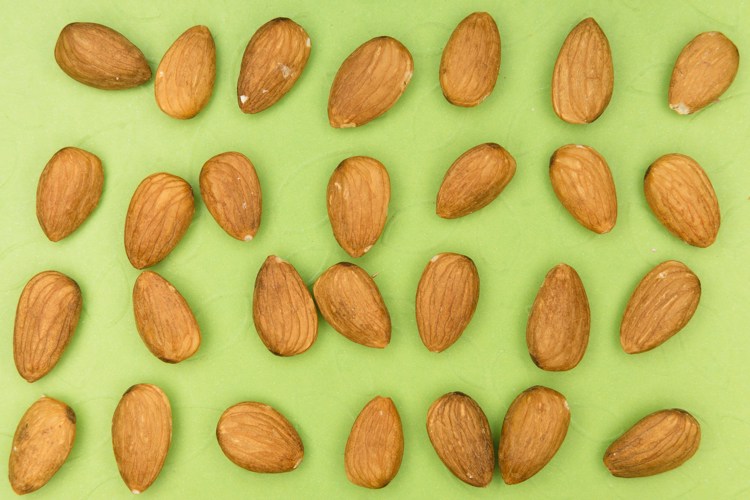
At ALOHA, we love incorporating almonds into our foods. Not only are they delicious, but they are rich in protein and contain healthy fats, fiber, and important vitamins like vitamin E. Including almond protein in your meals can help you feel full longer and provide energy throughout the day.
Here are just some of the benefits of almonds:
Good source of magnesium, which is good for heart health and strong bones. They're low in carbs, too, making them a smart pick for people watching their blood sugar levels.
Almonds support muscle repair for those who exercise regularly because they contain amino acids that our bodies use to rebuild muscle tissue after workouts.
Almonds contain antioxidants that may help protect your body's cells from damage.
To learn more about almond protein and its benefits, read our deep dive that contains everything you ever wanted to know about these nutritious nuts, from calories per serving to how to choose quality almond products or incorporate almonds into your meals.
Pumpkin Seed Protein
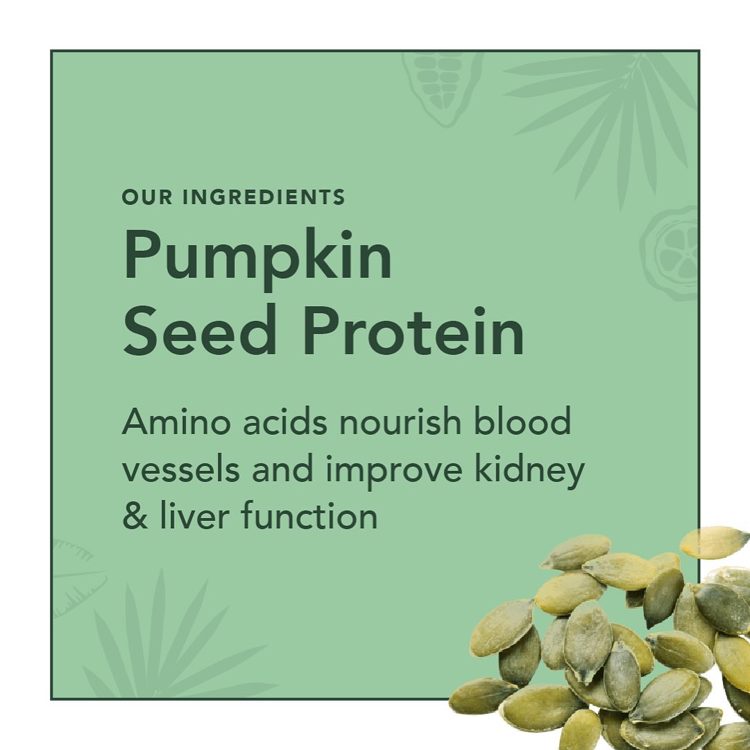
Pumpkin seeds are packed with protein, magnesium, and other health benefits that are great for your body, helping to support heart health and maintaining strong bones.
Here are some other benefits of pumpkin seed protein:
Contains zinc, which helps support the immune system. That means eating pumpkin seed protein can help you fight off colds and stay healthy.
Contains antioxidants that protect your cells from damage.
Offers amino acids that help repair muscles after a workout. This can be especially helpful if you're trying to build muscle or recover faster from exercise.
Adding pumpkin seed protein to your meals is easy too. You could sprinkle some on top of your salad or blend it into a smoothie for an extra boost of nutrition.
Choosing pumpkin seed protein also means you're making an environmentally friendly decision. Growing pumpkins uses less water than raising animals for meat, so it's better for our planet.
To learn more about this powerful plant protein source, read our detailed post on pumpkin seed protein and its benefits.
Brown Rice Protein
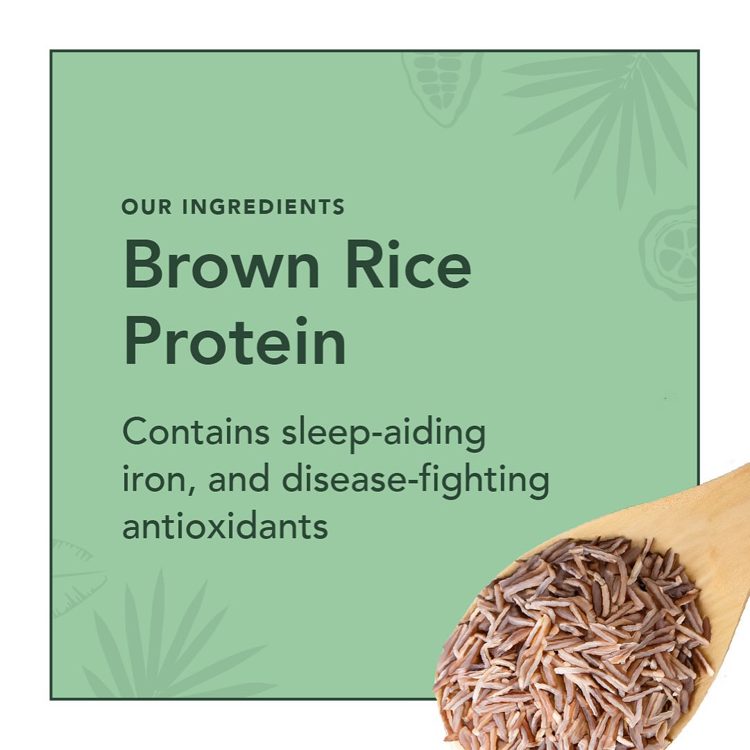
Brown rice is a complete protein, meaning it has all the essential amino acids your body needs to function well. This type of protein can help you build and maintain muscle mass, just like animal proteins do.
One great thing about brown rice protein is that it's easy on the stomach. Some people find other types of protein hard to digest, but brown rice protein is often gentler and can be a good option for those with sensitive stomachs.
It also has the benefit of being low in fat and free from cholesterol, making it heart-healthy. Plus, since it comes from plants, choosing brown rice protein helps reduce your environmental footprint by using less water and land than animal-based proteins.
For athletes or anyone who exercises regularly, brown rice protein provides important amino acids that aid in muscle recovery after workouts. This means you could bounce back faster from exercise when including this type of plant-based protein in your diet.
Remember that while all proteins provide energy for our bodies, not all have the same positive effects on our health and environment as plant-based options like brown rice do. So next time you’re considering a healthy addition to your diet, consider including some brown rice protein—it’s good for you and our planet!
Read our detailed article on brown rice protein to learn more about brown rice and why we use it in our products.
Hemp Seed Protein
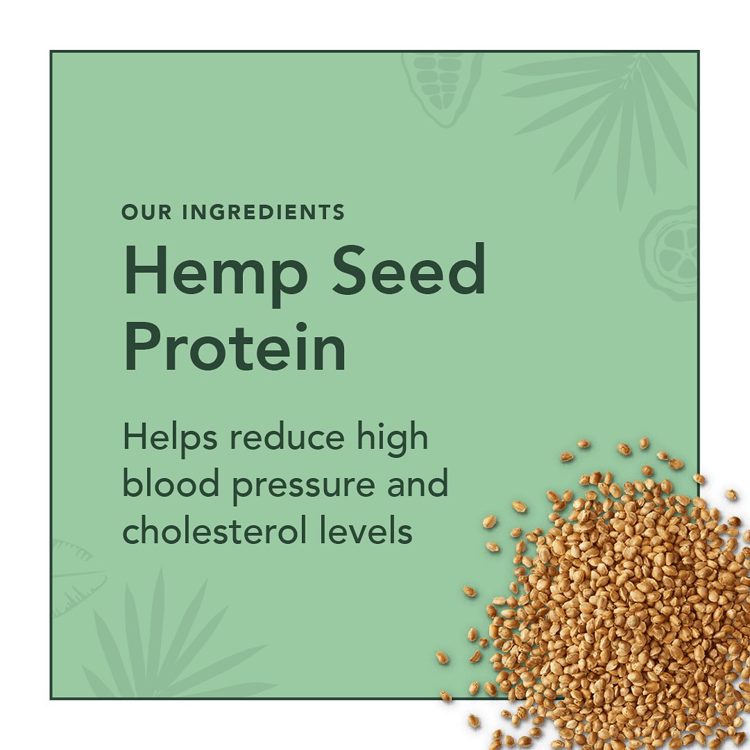
Hemp is a lean source of protein, meaning it doesn't have much fat, and about 25% of each hemp seed is pure protein. This makes it an excellent option for maintaining muscle mass without adding extra fat to your diet.
This type of protein also comes packed with omega-3 and omega-6 fatty acids, which are good for the heart and can help keep your heart healthy by protecting against diseases like heart attacks and strokes. Hemp seeds even contain special compounds called tocopherols that can lower the risk of cardiovascular diseases.
For people who want to stay fit or lose weight, hemp seed protein can be really helpful because it supports lean body mass and helps you feel full after eating. Feeling full can stop you from overeating, which is great if you're trying to manage your weight.
Hemp seed protein doesn't have any lactose or gluten either, so it's a safe choice for people who can't eat these things because of allergies or other health reasons.
Adding hemp seeds or powder to your meals is simple—you could mix them into smoothies or sprinkle them on top of salads for extra nutrition without changing the taste too much. To learn more about this underrated protein source and why we love it here at ALOHA, read our article on hemp seed protein.
Pea Protein
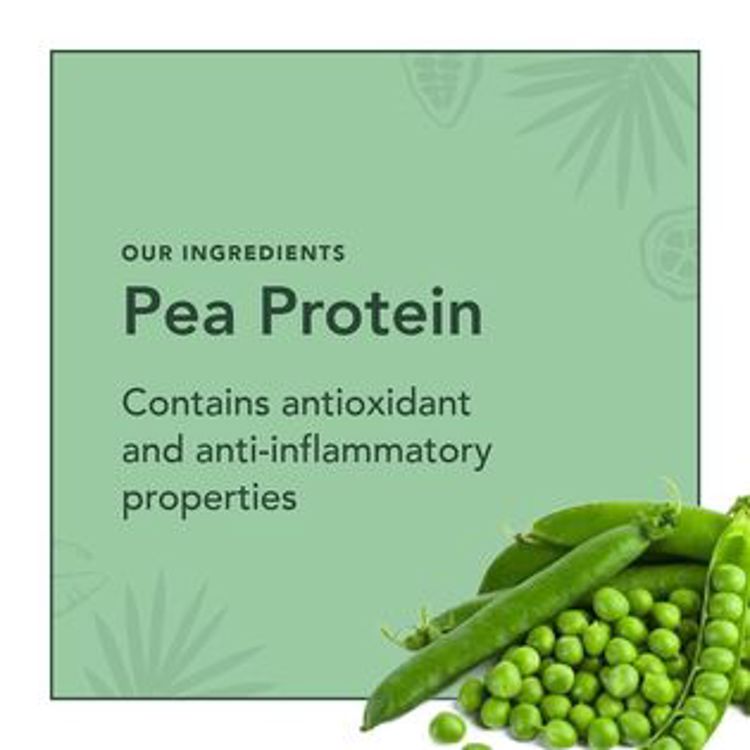
Pea protein is another plant-based protein powerhouse. Rich in lysine, an essential amino acid, pea protein supports a healthy immune system to help your body fight off illnesses and keep you feeling strong.
Studies show that pea protein may also be good for your heart. It contains special peptides that can lower high blood pressure, which is linked to heart disease. By choosing pea protein, you could be taking steps to keep your heart working well.
Another plus is that pea protein is lower in allergens than other proteins like soy or wheat. This makes it a safe option for many people with food allergies or sensitivities.
When considering what kind of plant-based proteins to incorporate into your diet, remember that pea protein offers numerous health benefits while also being kinder to our planet! To learn more about the benefits of pea protein on your health and the environment, read our detailed article, Pea Protein.
FAQ
What exactly is plant-based protein?
Plant-based protein is derived from plant sources such as beans, nuts, seeds, grains, and legumes. It serves as an alternative to protein obtained from animal products.
Is plant protein as effective as animal protein?
Yes, plant protein can be just as effective as animal protein when it comes to meeting dietary protein requirements, as long as a variety of plant proteins are consumed to provide all essential amino acids.
How can I ensure I'm getting enough protein on a plant-based diet?
To ensure adequate protein intake on a plant-based diet, include a variety of protein-rich plant foods like legumes, nuts, seeds, and whole grains in your daily meals.
Does plant protein have any benefits for weight management?
Plant protein can aid in weight management by promoting satiety, reducing calorie intake and potential weight loss.
Can I build muscle with plant-based protein?
Yes, you can build muscle with plant-based protein sources by consuming sufficient protein and engaging in strength training exercises.
How does plant protein consumption affect cholesterol levels?
Unlike some animal proteins, consuming plant-based proteins tends to improve cholesterol levels as they are typically low in saturated fat and cholesterol-free.
Are there any allergens in plant-based proteins?
Some individuals may be allergic to specific plant proteins, such as soy or nuts, but many plant-based proteins, like pea protein, are low in allergens and suitable for most people.
Can plant-based proteins provide all essential amino acids?
Yes, when various plant-based proteins are consumed throughout the day, they can provide the body's essential amino acids.
Is it more expensive to get protein from plant sources?
The cost of plant-based proteins varies, but they can be more affordable or comparable in price to animal protein sources, especially when considering whole foods like beans and lentils.
What is the environmental impact of choosing plant-based proteins?
Plant-based proteins generally have a lower environmental impact as they require less water, land, and energy and produce fewer greenhouse gases than animal proteins. Read "Plant-Based Diet Benefits for the Environment for more information on the environmental impact of plants.
How can individuals with dietary restrictions incorporate plant-based proteins?
Many plant-based proteins are naturally gluten-free and lactose-free, making them suitable for individuals with these dietary restrictions.
Can children and teenagers safely consume plant-based proteins?
Yes, children and teenagers can safely consume plant-based proteins, but they should consume a variety of sources to ensure adequate nutrient intake.
Are plant-based proteins suitable for those with diabetes?
Plant-based proteins are suitable for individuals with diabetes as they tend to have a low glycemic index and can help manage blood sugar levels.
How can plant-based proteins be included in meals and snacks?
Plant-based proteins can be easily incorporated into meals and snacks by adding them to smoothies, salads, soups, and baked goods or by consuming plant-based protein products.
Is it possible to consume too much plant-based protein?
It is possible to consume too much of any protein, including plant-based. It's important to have a balanced diet and not exceed your body's protein needs. Here's more information on how much protein your body can absorb.
ALOHA does not provide medical advice, diagnosis, or treatment. Any information published on this website or by this company is not intended as medical advice. Always consult a qualified health or mental health professional with any questions or concerns about your physical or mental health.
ALOHA Buying Guide

Vanilla Protein Powder
ALOHA Organic Plant-Based Protein Powder is a vegan protein powder with 18g of clean, organic, plant-based protein per pouch. It contains 200mg omega-3s and provides an excellent source of magnesium & iron. It is also USDA Certified Organic Non-GMO, Gluten-Free, Dairy-Free, Soy-Free and Vegan.
The ALOHA Organic Plant-Based Protein Powder is an ideal supplement for those looking to promote lean muscle development. Each pouch provides 18g of clean, organic, plant-based protein alongside 200mg of omega 3s and essential minerals such as magnesium and iron. This vegan protein powder is also certified organic by the USDA meaning it contains no preservatives or artificial ingredients. It is also gluten free, dairy free, soy free and vegan friendly! All these features make the ALOHA Organic Plant Based Protein Powder an easy choice for anyone looking for a healthy source of nutrition.
- Organic and Plant-Based ingredients promote a healthier lifestyle
- The delicious Vanilla flavor adds a sweet touch to your protein shakes
- As it is a Protein Powder, it helps in muscle recovery and growth
- A good source of protein for those on a vegan or vegetarian diet
- At 1.14 Pounds (518g), it provides a good quantity that lasts for an extended period
- Packaging is sturdy and ensures the product remains fresh
- The product is easy to mix with water, milk, or any preferred beverage without forming lumps.
The Kona Bar (Pack of 6)
ALOHA's Organic Plant Based Protein Bars are vegan, low sugar, gluten free, paleo friendly and contain 14 grams of USDA organic plant-based protein.
The ALOHA Organic Plant Based Protein Bars are a delicious and healthy snack option. They are made with local ingredients from Hawai’i such as 100% Kona Coffee, 100% Hawai’i-grown Macadamia Nuts and Ponova oil from O'ahu's North Shore. The bars contain 14 grams of USDA organic plant-based protein as well as 10g of fiber and only 5g of sugar per bar, making them an excellent choice for those looking for a nutritious snack. Furthermore, the bars are vegan, Non-GMO, gluten free snacks that are Soy-Free, Dairy-Free and Stevia-Free. Finally, 10% of proceeds from the bars will be donated to Kupu to support agricultural education programs in Hawaii – a nice touch!
- Organic Plant Based Protein: Consumers love the fact that these bars are made from organic plant-based protein, making them a great source of protein for vegans and vegetarians.
- Special Edition Kona Flavor: The unique Kona flavor is a hit among customers, who appreciate the novelty and taste of this special edition.
- Low Sugar: Customers appreciate that these bars are low sugar, making them a healthier snack option.
- Gluten Free and Paleo: These bars are gluten free and paleo, which fits perfectly into the dietary needs of many consumers.
- Non-GMO: The fact that these bars are Non-GMO is highly valued by consumers who are careful about their food choices.
- Free from Stevia, Soy and Erythritol: Customers value the absence of Stevia, Soy and Erythritol in these bars, making them a clean eating option.
- Low Carb: The low carb count is appreciated by customers who are watching their carbohydrate intake or following a keto diet.
Chocolate Protein Powder
Plant-Based Protein Powder with Organic Chocolate, Keto Friendly, Vegan, Gluten Free, Non-GMO, Stevia Free & Erythritol Free, Soy Free, Dairy Free and Only 4g Sugar.
This Plant-Based Protein Powder is an excellent choice for those looking for a healthy and delicious way to get their daily protein intake. It is vegan and contains no soy or dairy meaning it can be enjoyed by most dietary restrictions. Plus it is keto friendly with only four grams of sugar per serving! It also contains MCT oil giving it a boost of natural energy that will keep you going throughout the day. Finally, this product is free from both stevia and erythritol making it a great choice for those who want to avoid artificial sweeteners.
- Plant-Based: The protein powder is vegan-friendly, making it suitable for those following a plant-based lifestyle.
- Keto Friendly: With MCT Oil included, it is ideal for those on a ketogenic diet.
- Low Sugar: Containing only 4g of sugar, it's an excellent option for people looking to limit their sugar intake.
- Gluten and Soy Free: This product is perfect for those with dietary restrictions as it's free from gluten and soy.
- Dairy Free: Being dairy-free makes it an excellent choice for lactose-intolerant individuals or those avoiding dairy.
- Non-GMO: The protein powder is non-GMO, indicating a commitment to natural ingredients and health.
- Free from Stevia and Erythritol: This product does not contain stevia or erythritol, making it a great choice for those who prefer to avoid these sweeteners.

